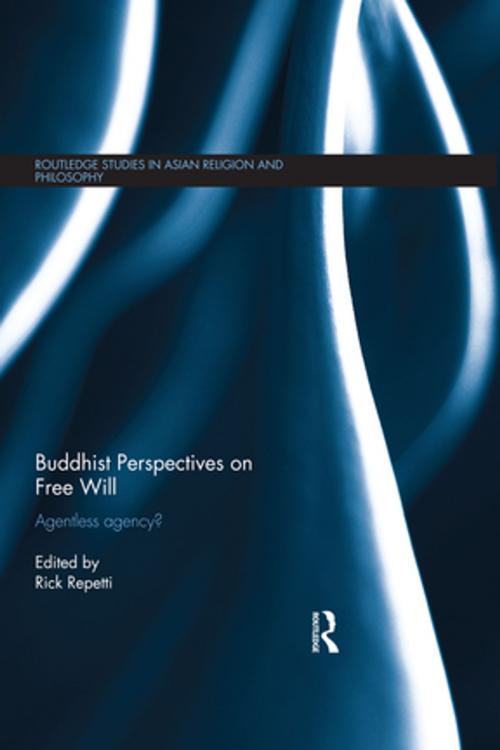Buddhist Perspectives on Free Will
Agentless Agency?
Nonfiction, Social & Cultural Studies, Social Science, Cultural Studies, Ethnic Studies, Religion & Spirituality, Eastern Religions, Buddhism, Philosophy| Author: | ISBN: | 9781317362081 | |
| Publisher: | Taylor and Francis | Publication: | July 28, 2016 |
| Imprint: | Routledge | Language: | English |
| Author: | |
| ISBN: | 9781317362081 |
| Publisher: | Taylor and Francis |
| Publication: | July 28, 2016 |
| Imprint: | Routledge |
| Language: | English |
Throughout the history of Buddhism, little has been said prior to the Twentieth Century that explicitly raises the question whether we have free will, though the Buddha rejected fatalism and some Buddhists have addressed whether karma is fatalistic. Recently, however, Buddhist and Western philosophers have begun to explicitly discuss Buddhism and free will.
This book incorporates Buddhist philosophy more explicitly into the Western analytic philosophical discussion of free will, both in order to render more perspicuous Buddhist ideas that might shed light on the Western philosophical debate, and in order to render more perspicuous the many possible positions on the free will debate that are available to Buddhist philosophy. The book covers:
- Buddhist and Western perspectives on the problem of free will
- The puzzle of whether free will is possible if, as Buddhists believe, there is no agent/self
- Theravāda views
- Mahāyāna views
- Evidential considerations from science, meditation, and skepticism
The first book to bring together classical and contemporary perspectives on free will in Buddhist thought, it is of interest to academics working on Buddhist and Western ethics, comparative philosophy, metaphysics, philosophy of mind, philosophy of action, agency, and personal identity.
Throughout the history of Buddhism, little has been said prior to the Twentieth Century that explicitly raises the question whether we have free will, though the Buddha rejected fatalism and some Buddhists have addressed whether karma is fatalistic. Recently, however, Buddhist and Western philosophers have begun to explicitly discuss Buddhism and free will.
This book incorporates Buddhist philosophy more explicitly into the Western analytic philosophical discussion of free will, both in order to render more perspicuous Buddhist ideas that might shed light on the Western philosophical debate, and in order to render more perspicuous the many possible positions on the free will debate that are available to Buddhist philosophy. The book covers:
- Buddhist and Western perspectives on the problem of free will
- The puzzle of whether free will is possible if, as Buddhists believe, there is no agent/self
- Theravāda views
- Mahāyāna views
- Evidential considerations from science, meditation, and skepticism
The first book to bring together classical and contemporary perspectives on free will in Buddhist thought, it is of interest to academics working on Buddhist and Western ethics, comparative philosophy, metaphysics, philosophy of mind, philosophy of action, agency, and personal identity.















